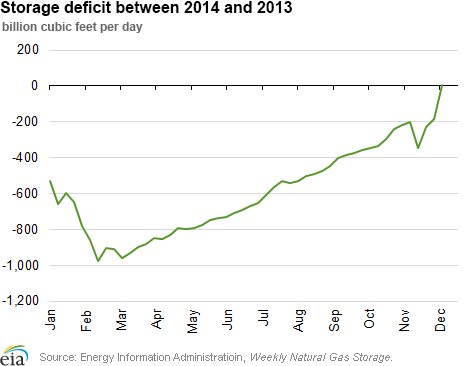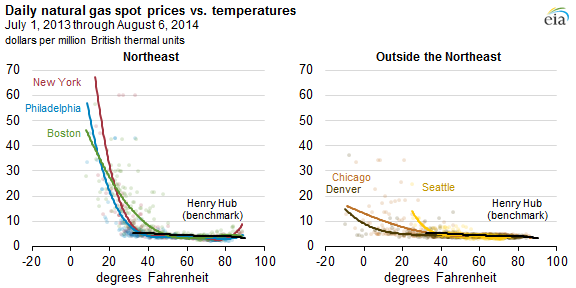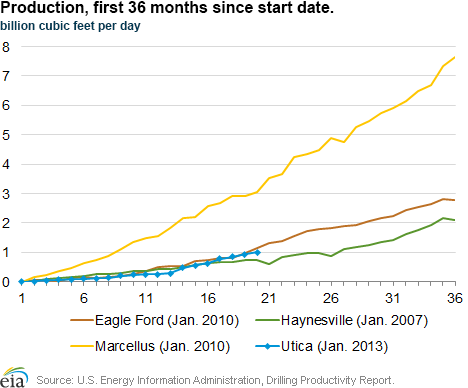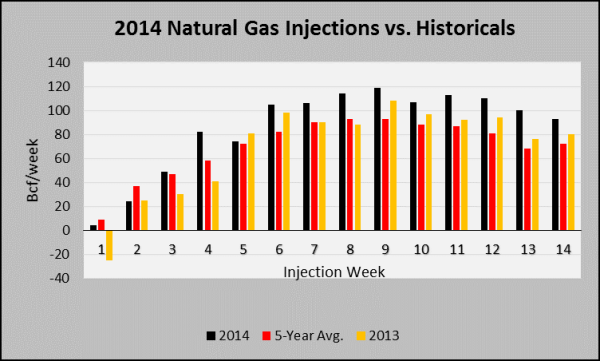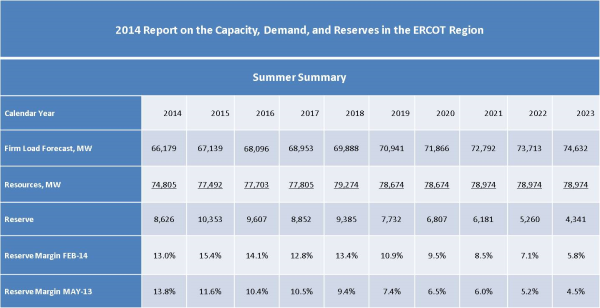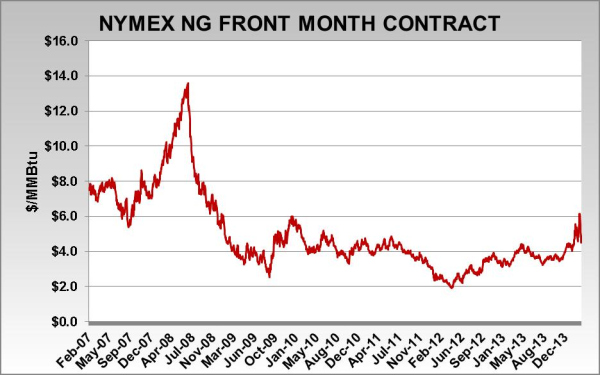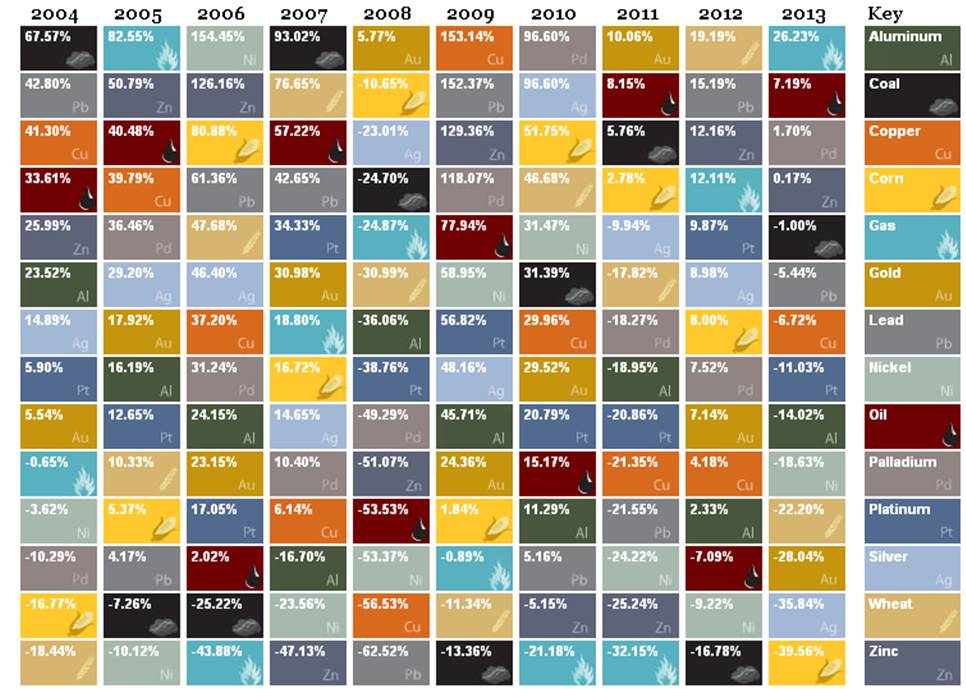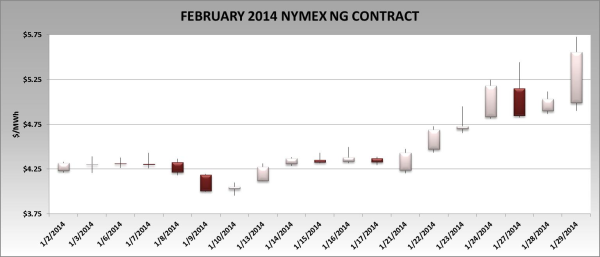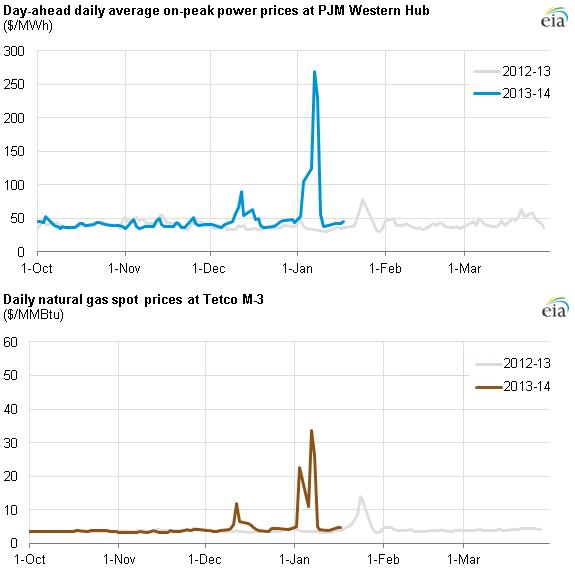Massive contrast between colder than normal temperatures in Nov-2014 and above normal temperatures in Dec-2014 have caused very high price volatility in the Natural Gas futures market. Shifts in weather forecasts and record production have been the main price action drivers during the first half of the winter.
Jennifer Chang
Recent Posts
Natural Gas Supply Shortage Concerns Have Eased
Posted by Jennifer Chang on Dec 23, 2014 10:54:00 AM
Topics: system operators, Acclaim Energy Advisors, energy management consulting, risk management, energy procurement, weather outlook, reliable energy, demand response, energy regulations, energy savings, power generation, Weekly Energy Insights, natural gas, energy management, energy management consultants, strategic energy sourcing, reserve margin, energy price spikes, Price Spike, energy blog, power outages, Natural Gas Supply, NG Demand, energy supply, Winter Weather, demand, scarcity pricing, current outlook
Acclaim Energy Advisors Supports OakBend Medical Center
Posted by Jennifer Chang on Oct 6, 2014 2:18:00 PM
Topics: Oakbend Medical Center, Safari Texas Ranch, Patchwork of Life, sponsorship, sponsorship opportunities, auction, health, senior citizen, healthcare, Acclaim Energy Advisors
Weather Effect on Regional Natural Gas Spot Prices
Posted by Jennifer Chang on Aug 29, 2014 11:08:00 AM
Multiple supply and demand factors affect seasonal natural gas and electricity spot [1]prices across the country:
Topics: Heating Season\, Polar Vortex, forward curve, winter strip, spot price, Heat Rate, black swan event, pipeline capacity, energy sourcing, Acclaim Energy Advisors, risk management, energy, energy procurement, weather outlook, demand response, energy regulations, energy reliability, energy savings, Weekly Energy Insights, natural gas, energy management, reserve margin, energy price spikes, Price Spike, energy blog, Natural Gas Supply, price volatility, NG Demand, Winter Weather, new england, NG
A brutal cold start of the year has been followed by moderate temperatures across the country. Natural gas prices have risen significantly since early January 2014, as inventories were being depleted at a faster than normal rate due to higher than normal heating demand. Nevertheless, record production and tepid demand after the spring months triggered a massive selloff in mid-June 2014, with the front month losing more than 20 percent to date. Early concerns of tight supply conditions ahead of the next heating season have eased due to weekly record or near-record injections. Electricity prices have also plunged not only because of the recent drop in natural gas prices, but also because of a drop in heat rates. In Texas, peak load had not been this low in June and July since 2010. Low electricity demand has depressed spot and forward heat rates.
Topics: energy risk management, energy sourcing, Acclaim Energy Advisors, risk management, energy procurement, weather outlook, reliable energy, demand response, energy reliability, power generation, Weekly Energy Insights, natural gas, Event, economic demand response, energy management, energy management consultants, strategic energy sourcing, Hurricane Season, reserve margin, energy price spikes, renewable energy, Price Spike, energy blog, power outages, Natural Gas Supply, price volatility, reserve, report, energy efficiency, mild weather, energy storage, NG Demand, seasonal drought
Natural gas inventories have recovered significantly after reaching an 11-year record low of 822Bcf in late March-2014. During the last nine weeks, natural gas injections into storage have outperformed historical levels, and eight of them exceeded 100Bcf/week. Moreover, the last nine injections have exceeded the five-year average gains by 24Bcf on average. The drivers behind these above normal injections are the following:
Topics: Texas Energy, tropical storm, hurricane, energy sourcing, Acclaim Energy Advisors, energy management consulting, risk management, energy, Energy Solutions, energy procurement, weather outlook, reliable energy, demand response, energy regulations, energy reliability, energy savings, Weekly Energy Insights, natural gas, energy management, Price Spike, energy blog, power outages, Natural Gas Supply, price volatility, mild weather, energy supply, Texas, load generators, Peak Demand, forecasting
ERCOT's Latest CDR Report Shows Higher Reserve Margins: How Will This Affect Regulatory Policy?
Posted by Jennifer Chang on Mar 5, 2014 10:15:00 AM
On Friday, February 28, ERCOT published its 2014 Capacity, Demand and Reserves (CDR) report. Resource adequacy has been at the forefront of ERCOT’s electricity policy debate. Forecasting future demand is critical for planning purposes to determine how much generation will be needed in future years to meet peak demand. Resource adequacy concerns have prompted the PUCT to approve mechanisms that increase the duration and frequency of scarcity pricing signals in ERCOT to support adequate generation development in the state. One measure, that has also encouraged some Commercial and Industrial customers to take advantage of higher prices through prices response (load shedding and Distributed Generation (DG) dispatch), is the October 2012 decision to increase the system-wide offer cap to the following levels, effective on the dates below:
Topics: ERCOT, risk management, Energy Solutions, energy procurement, demand response, energy reliability, power generation, Weekly Energy Insights, reserve margin, energy price spikes, energy blog, reserve, report, energy efficiency, U.S. energy, PUCT, forecasting, CDR, capacity, demand, load shedding, distributed generation, scarcity pricing, current outlook
Energy Future Holdings-Is a Bankruptcy Filing Looming?
Posted by Jennifer Chang on Feb 28, 2014 12:48:00 PM
On October 10, 2007, the largest leveraged buy-out in American history was completed by Kohlberg Kravis Roberts, Texas Pacific Group and Goldman Sachs Capital Partners. Energy Future Holdings (EFH), executed a merger agreement to acquire all the shares of the publicly traded TXU Corp for $45 billion (32 billion plus $13billion in assumed debt). All parties agreed to the deal in February 2007, and in September 2007, TXU shareholders had approved the takeover. EFH ended up with a portfolio of competitive and regulated energy companies:
Topics: TXU, bankruptcy, Energy Future Holdings, TXU Energy, ERCOT, energy sourcing, Acclaim Energy Advisors, energy management consulting, energy, Energy Solutions, energy procurement, demand response, energy reliability, energy costs, Weekly Energy Insights, energy management, energy blog, DLO 365, U.S. energy, curtailment, NYMEX
Crude Oil and Natural Gas Top Commodity Performers in 2013: Natural Gas Price Action Recap
Posted by Jennifer Chang on Feb 14, 2014 8:43:00 AM
During this winter season, natural gas price volatility has been extreme as temperatures have fallen to unprecedented levels due to the breakdown of the polar vortex. Low temperature records were broken across the U.S., natural gas heating-related demand has risen and natural gas inventories have been depleted at a faster rate when compared to historical benchmarks. Nevertheless, natural gas has not been the most volatile commodity in recent years according to the U.S. Global Investors Periodic table of Commodities Returns. In the last 10 years, the most and the least volatile commodity returns have been registered in Nickel and Gold respectively. Crude Oil has been a top three performer in four of the last 10 years, while natural gas has only been in this category two out of the last 10 years.
Topics: Polar Vortex, energy risk management, energy sourcing, Acclaim Energy Advisors, energy procurement, weather outlook, reliable energy, demand response, energy regulations, energy reliability, energy savings, energy costs, power generation, Weekly Energy Insights, natural gas, Event, energy management, energy management consultants, energy price spikes, Price Spike, energy blog, power outages, Natural Gas Supply, price volatility, Winter Weather, curtailment, Emergency, NG contract
Highest NYMEX Natural Gas Expiration in Four Years: Tough Risk Management Lesson for Some
Posted by Jennifer Chang on Jan 31, 2014 5:16:00 PM
On January 2, 2014, the NYMEX Henry Hub NG February-2014 (front month) contract settled at $4.321/MMBtu, and on January 29, 2014, the contract expired at $5.557/MMBtu (see chart below). This was the highest expiration settlement price for the front month in four years. During the month of January, the front month contract rose $1.24/MMBtu, or 28.6%. The chart below shows that on expiration day (1/29/14) the front month price posted a $0.52/MMBtu or 10% gain for the day. The March 2014 contract followed suit and rallied almost 11%, settling at $5.465/MMBtu. During the expiration day, weather forecasts turned colder than previously expected, so market players that underestimated demand rushed to the market and were clobbered in a short squeeze.
Topics: energy risk management, energy sourcing, Acclaim Energy Advisors, energy, Energy Solutions, energy procurement, reliable energy, demand response, energy regulations, energy reliability, energy savings, energy costs, power generation, Weekly Energy Insights, natural gas, energy management, energy management consultants, energy price spikes, Price Spike, energy blog, Natural Gas Supply, price volatility, energy supply, U.S. energy, NG, curtailment, Emergency, gas gross production report, price direction, NG contract, NYMEX
NG Spot Prices Reach Record Levels and Boost Power Prices During January 2014
Posted by Jennifer Chang on Jan 24, 2014 5:17:00 PM
Two ruthless surges of arctic air, east of the Rockies, have taken over the eastern half of the country this month. The latest forecasts suggest that this weather pattern will continue to linger through the end of the month. Sub-zero temperatures are expected in the upper Midwest cities and the great lakes, including Chicago, Minneapolis and Detroit and possible below zero temperatures as far south as the Ohio River. Factoring in wind chill, temperatures are expected to be 20 or 30 degrees below zero. This weekend a couple of Canadian clippers will be followed by another arctic surge through mid-next week with conditions that could rival those from January 6, 2014. A Canadian clipper (a.k.a Alberta clipper) is a storm system during the winter months that originates from the Canadian Province of Alberta (or there close by). The term "clipper" originates from the quick speeds of clipper sailing ships. Thus, an Alberta clipper is a quick-moving winter storm system originating from Alberta, Canada. A clipper will usually bring smaller bursts of snow (generally 1-3 inches) along with colder temperatures and often times gusty winds (The National Oceanic and Atmospheric Administration).
Topics: energy risk management, Acclaim Energy Advisors, risk management, energy, Energy Solutions, energy procurement, weather outlook, reliable energy, demand response, energy regulations, energy reliability, energy savings, energy costs, power generation, Weekly Energy Insights, natural gas, Event, energy management, energy management consultants, energy price spikes, Price Spike, energy blog, energy supply, Winter Weather, U.S. energy, Peak Demand, mid-atlantic, new england, NG


